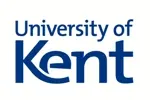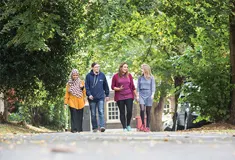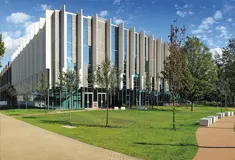About The Contemporary NovelPractice as Research, MA, PhD - at University of Kent
While the aims and objectives remain the same as on any other PhD programme in the humanities, for example, you are expected to contribute new knowledge of some sort, and to explore original, contemporary research questions, you are expected to achieve almost all of this in the novel itself. There is no long critical piece attached to this PhD programme. Instead, you produce a 3-5,000-word essay that works like a preface to your project, linking your concerns with others', demonstrating your awareness of theme and locating your work within/without one or more traditions etc. You also need to produce a full bibliography.
All UK universities and relevant funding councils and bodies (including REF panels) now support the idea that literary novels are research outputs in their own right and in themselves make significant contributions to knowledge. The idea that a novel might 'know' something about war that a piece of historical research could not know (in the case of Art Spiegelman's MAUS, for example), or that philosophy can be undertaken in fiction (as in the work of Borges) is one that we have been embracing at Kent for several years now.
Our PhD programme brings us right up-to-date with the ways in which novelists function in universities. You need to do a lot of critical thinking, reading and research and then turn it into contemporary fiction. You have a supervisory team to read your work and help you with thinking, research, plotting, editing, characterisation, pace, dialogue and so on.
You meet regularly with your supervisor and have the opportunity to take part in informal reading groups and research seminars to which students, staff and visiting speakers contribute papers. You also benefit from a series of research skills seminars that run in the spring term, which gives you a chance to share the research expertise of staff and postdoctoral members of the department.
As a basis for advanced research, you must also take research methods programmes.
The School of English has a strong international reputation and global perspective, apparent both in the background of its staff and in the diversity of our teaching and research interests.
Our expertise ranges from the medieval to the postmodern, including British, American and Irish literature, postcolonial writing, 18th-century studies, Shakespeare, early modern literature and culture, Victorian studies, modern poetry, critical theory and cultural history. The international standing of the School ensures that we have a lively, confident research culture, sustained by a vibrant, ambitious intellectual community. We also count a number of distinguished creative writers among our staff, and we actively explore crossovers between critical and creative writing in all our areas of teaching and research.
The Research Excellence Framework 2021 has produced very strong results for the School of English at Kent. With 100% of its research environment and 100% of its research impact judged to be 'world leading' or 'internationally excellent'. The Times Higher Education has ranked English at Kent in the UK top 20 in its subject league table, out of 92 universities. As scholars and creative practitioners, academic staff in the School of English are national and international leaders in their fields. The expert panel judged 93% of its research overall and just under 90% of its research outputs, as 'world leading' or 'internationally excellent'.
Course location:
Canterbury
Learn more about The Contemporary NovelPractice as Research, MA, PhD - at University of Kent
Visit course webpage 




























